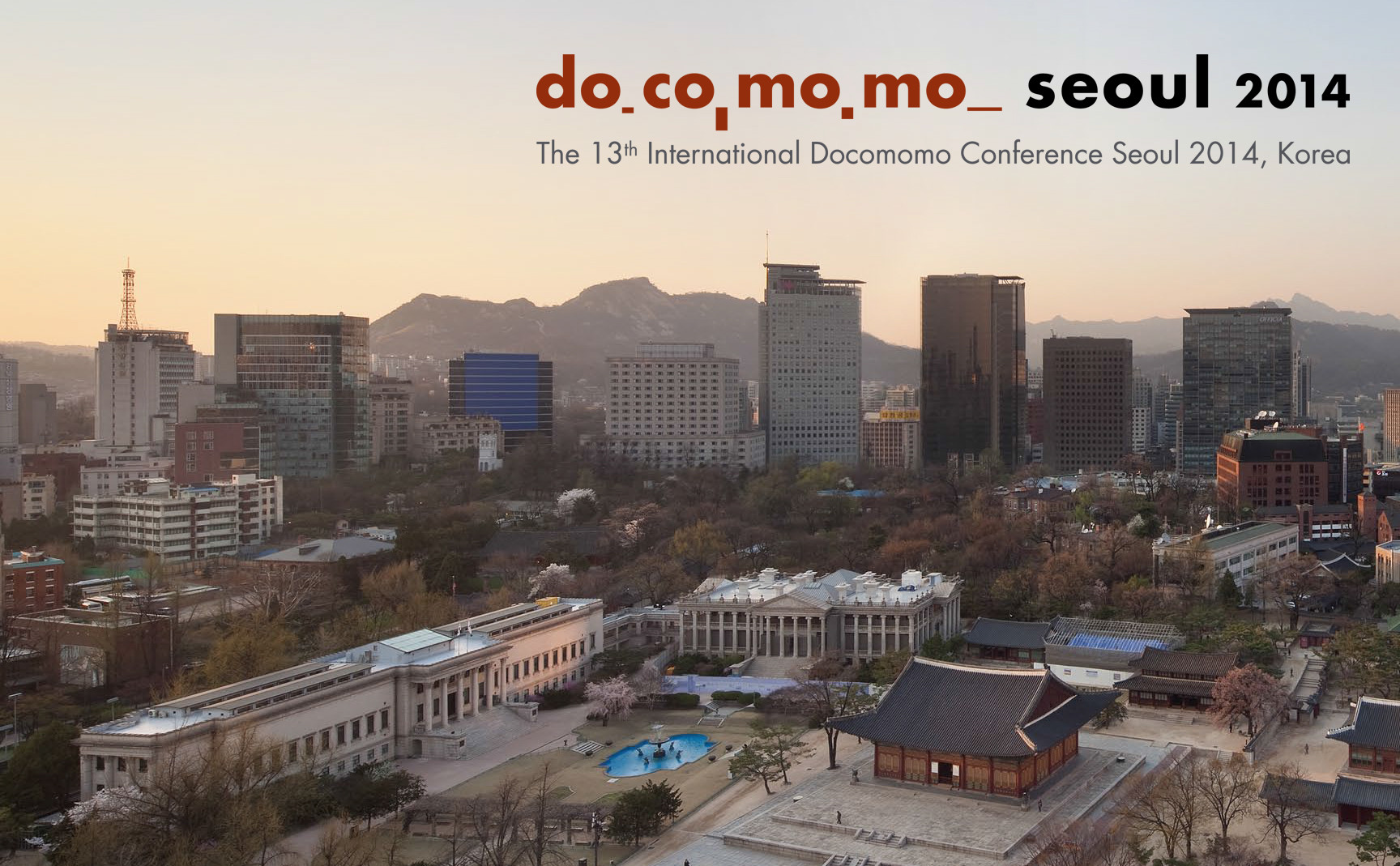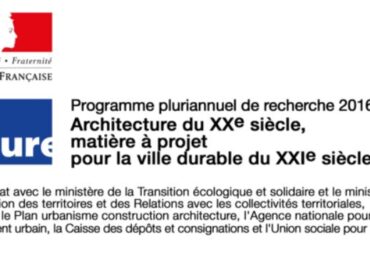Seoul, South Korea, 19-29 September 2014
THEME
Expansion and Conflict
VENUE: National Museum of Modern and Contemporary Art, Seoul
ORGANIZED by: Docomomo International + Docomomo Korea
LANGUAGE: English and Korean (Simultaneous interpretation will be provided)
SCHEDULE
. 19-24 September – WORKSHOP – program
. 25-27 September – CONFERENCE – final program
. 28-29 September – POST-CONFERENCE TOUR – program
LOGISTICS
. Online Registration available here.
. Accommodation/Airline details available here.
. Registration Fees
Early registration by 30th June 2014:
. 200 EUR (docomomo members)
. 300 EUR (non members)
. 100 EUR (students)
Pre-registration by 1st July~10th September 2014:
. 400 EUR (docomomo members)
. 500 EUR (non members)
. 200 EUR (students)
On Site Registration
. 500 EUR (docomomo members)
. 600 EUR (non members)
. 300 EUR (students)
The registration fee includes
. Conference materials
. Lunch and coffee breaks during the conference
. Social program except excursion(DocoTours)
. Information desk services on site
DESCRIPTION
The Modern Movement challenged a millennium of classical values through a collective global revolution in technological, social, political and aesthetic spatial values. The magnitude and complexity of this confrontation between epochs multiplied when Modernity’s western values expanded into the Asian sphere.
The diasporas of Modernity and the resultant local interpretations of the movement are well documented and known. Even the moniker “International Style” presumed a singularity on a global scale, only to be tweaked and usurped by regional modern architects who would integrate modern values with regional sensibilities. But it is important to remember these exchanges and re- calibrations took place on the shared stage of a singular western culture.
The 2014 International Conference re-measures this expansion of the Modern ethos within a wholly different context of Asia. Instigated by a geo-political expansionist policy, these colonial expansions produced violent confrontations and challenged the very cultural and heritage foundation of Asia. As a result, the relevancy of the Modern Movement—not as a style but as a way of thinking, a harbinger of contemporary values—was tested and fortified. Predictably, Modernity in Asia grew and matured through this process of conflict and expansion and intrinsically took on very distinct identities in different regions. To comprehend the variety of Asian Modernism, it is vital to map a comparative analysis of each country´s Modern roots and major achievements.
The theme of Expansion and Conflict fundamentally interrogates the values and relevancy of the Modern Movement through the extreme cultural lens of Asia. By this interrogation, we hope to secure its aspirational role in any culture and society. We would declare that conflict is not necessarily a pejorative but maybe a challenge for the future. It signifies a vigorous recognition of each culture’s robust and intrinsic values—the existing culture and modernism’s raison d’être. As Modern Movement is asked to earn a space of its own by clashing with the existing intrinsic order, it does so by forming a new value system. Through this process, it grows to become a regional phenomenon and eventually gains the momentum necessary to develop and expand on its own.
1. Education and Theory
The difference of philosophies between the east and the west bears fruit to an evolving discussion regarding theories of space, tectonics and meaning. The linearity of approaching the modern movement must evolve to a lateral system that permits multiple relationships with cultural issues in conflict with the existing pattern. The practical integration of this expansive architectural education should be discussed as a pedagogical structure for Asia and worldwide.
2. Urbanism and Landscape
Urban planning and landscape have experienced a turbulent yet dynamic evolution in modern Asia and elsewhere. While Europe can reclaim the palimpsest of an existing city pattern, Asia, Africa and South America are literally defined by either colonial foreign entities or the new mode of western urbanism. What emerged from this binary system of colonial and western urbanism is an unconventional relationship between program, infrastructure and landscape which produced dynamic new urban typologies.
3. Conservation and ReUse
The rapidly changing city is the stage for repeated collisions between social and economic desires and historically-valued ideologies. It is within this context of conflict that the heritage of the modern movement must now expand. However, changing social and economic demands lead to frequent instances when the value of preserving and reusing modern building is not recognised. Conservation and reuse policy, legal action, public education, and awareness programs to sustain the exchange of opinion are therefore necessary.
4. Technology
The selection of buildings materials is traditionally depending on technology. However cultural implications and meaning are associated with the use of local and global, natural or industrial materials. Therefore, it is critical to understand expansion and conflict in terms of building construction. It is also critical to face modern technology from the contemporary point of view of rehabilitation and sustainability.
5. Asian Modernity
Is Modern Movement a western concept? Can one be Modern and non western? The definition of Asian Modern Movement begins with locating and defining the core values and ethos of modernity. These values aspire to be universal beyond local culture and geography. Therefore, one would contend if modernity has stopped being western-centric, and has become a universal set of values that can be appropriated by any region. Simultaneously, these values are mobilized and activated through specific vehicles of local history, culture and resources. Asian modernity would represent the most extreme and challenging of these cultural vehicles.
SCIENTIFIC COMMITTEE
Ana Tostões
Andrea Canziani
Carlos Comas
Cheng Yang
Eui-Sung Yi
Eui-Sung Yi
Gonçalo Canto Moniz
Hanna Lewi
Jieheerah Yun
Jong Soung Kimm
Jonghun Kim
Kenji Watanabe
Kyle Normandin
Liu Kecheng
Louise Noelle
Marieke Kuipers
Panayotis Tournikiotis
Yoshiyuki Yamana
For more details, please contact the Conference Secretariat and check the Conference Website.





